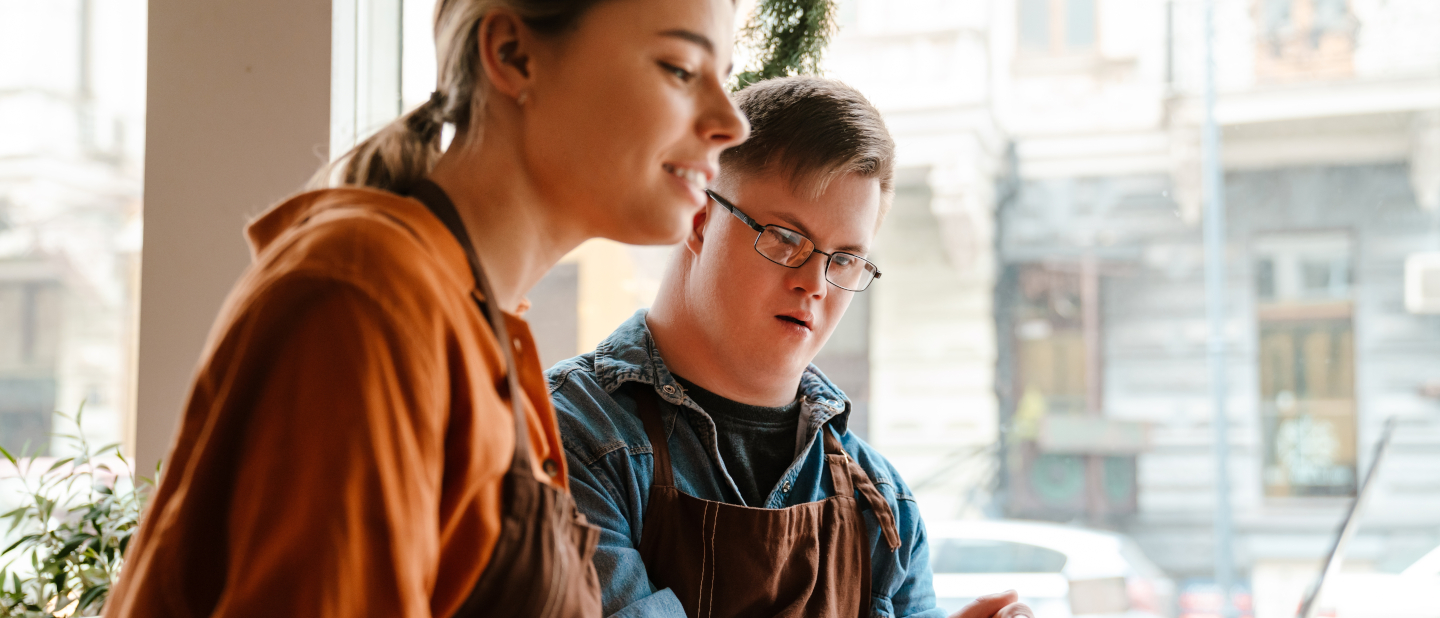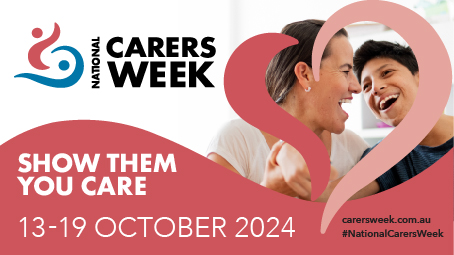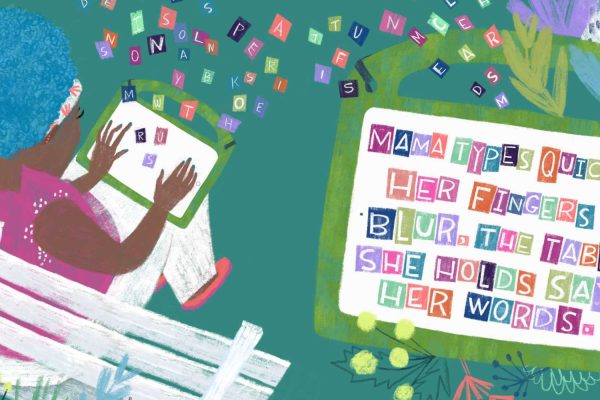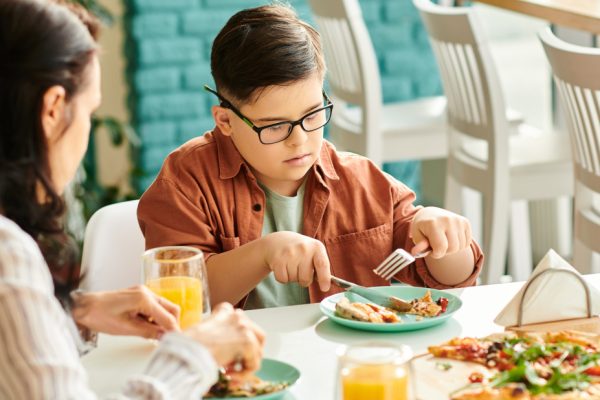
Developing life skills in young adults
So, your young person is talking about living a more independent and socially active lifestyle, and wants to build their confidence levels in the process, but you’re not sure where to start.
Many people with disability (and their carers) get overwhelmed when they think of the prospect of change. But it doesn’t have to be one “big” thing. In fact, better results are often achieved when people take it one step at a time. Check out this helpful guide from Endeavour Foundation.
HEALTH
A great place to start is with health. Living a healthy lifestyle is an integral part of quality of life. Common skills include healthy eating, exercise, personal hygiene, and safe sex.
Let’s take a closer look at the key areas of healthy living:
Personal hygiene
Personal appearance and hygiene can often help boost confidence in social situations. In fact, looking and smelling good will help nurture a sense of personal pride.
The key to maintaining a healthy personal hygiene level is all about daily habits.
Daily habits such as showering, brushing teeth, using deodorant and perfume/aftershave, getting dressed, and combing hair, may seem simple, but can significantly improve personal hygiene and confidence.
A great way to support changes is by modelling the behaviours. Consider involving yourself in these daily habits with your loved one.
Eating and cooking healthy food
A healthy diet has many obvious, and several not-so-obvious, benefits. Eating healthy foods helps people maintain a healthy weight. This may prevent the increased risk of illness or disease later in life.
Psychologically, healthy eating can make an individual feel more confident in the way they look and interact with people.
A good way to kick-start a healthy diet and eating routine is to take a cooking class. This will help your loved one start to understand what foods can go together to make for a tasty meal. Plus, new cooking skills may even inspire them to take it up as a hobby.
Exercise
Everyone has a different level of ability when it comes to exercise. Daily exercise can start with something as simple as a walk to the shops, or a few arm raises.
Small habits such as this can boost energy levels and over time will improve body image, strength and well-being.
To make sure your loved one has the most appropriate exercise program for their ability, contact an occupational therapist or support worker who can help you put together a plan.
Sexual health
Sexuality is a normal part of life. We’re all human, and experience feelings and desires that drive us toward sexual activity.
Sexual activity comes with responsibility. Which means learning to treat others with respect, and understanding good sexual health practices.
People with disability can have rewarding sexual relationships. But to do so, they may need more support and information.
Sexual health for people with disability is a large topic. There are some basic principles that can provide an appropriate starting point:
- Help them understand and believe that they can have a fulfilling sex life.
- Appreciate that a disability can at times hinder sexual activity, especially if it is physical.
- Encourage them to seek information about what is appropriate, and what isn’t when it comes to sexual activity from a social and legal perspective.
Educate your loved one on the potential implications of sexual activity. Such as pregnancy, Sexually Transmitted Diseases (STDs), consent and emotional trauma.
HOUSEHOLD ACTIVITIES
Washing, ironing, cleaning or gardening may be the type of life skills your loved one can start to build around the house.
Much like other skills mentioned, the real benefit they will get from working on these skills is the confidence that they can learn new things.
HOBBIES AND SPORT
Sport can be a great way to develop friends, communication skills and stay fit and healthy.
But if it’s not for them, no worries. There are plenty of hobbies they can take up that don’t involve throwing a ball around or using a bat.
Hobbies are a huge part of a fulfilled lifestyle and something any adult should partake in. Maybe they love fishing, maybe they love playing board games, or maybe they just love spending time at the beach. Think about what they are passionate about and encourage them to do more of it.
COMMUNITY
Many of us like to spend time in our local communities. The more someone interacts and engages with the local community the easier it becomes.
Here are a few skills you can help your loved one focus on to become more involved in the local community:
Public transport
Some people are not enthused about public transport, but it’s a great opportunity to interact with people and boost someone’s skill set.
Instead of taking a car/taxi ride, encourage them to jump on a train or a bus. They may need some support or feel uncomfortable initially, so go along with them to share the experience.
Once they are familiar with the transport system it will free them up to do more of the things they love, without the required help of anyone else.
Road safety
With increased independence comes a greater need for awareness. If someone doesn’t have a driver’s license or is unfamiliar navigating the streets alone, there could be a big knowledge gap.
People with disability often rely on their carers to help them better understand these situations. The goal is to help them reach a competency level at which they can interact in everyday situations more independently.
Consider encouraging your loved one to do a road safety course, and then go along with them. Practice the lessons you learn next time you go out together.
Eating at restaurants
Eating out at restaurants can be a lot of fun, but for some people with disability it can be a daunting experience. The thought of needing to communicate with the wait staff, explain their order and then pay the bill requires many crucial life skills. Combine these things and this can pose an anxiety provoking scenario.
Repetition is the key to building any skill. The more you go out for dinner with your loved one, the more comfortable they will be with the situation.
RELATIONSHIPS
Relationships come in all shapes and forms – from friends, family, support workers, carers and intimate partners – the skills required to develop meaningful relationships are diverse and challenging.
But without developing the skills to nurture and sustain these relationships, life can be lonely. So, taking the time to invest in the life skills required to build meaningful relationships is a worthwhile pursuit.
There are three key areas of development you may like to look at:
1. Social interactions
Relationships all begin with social interactions and there are some basic skills you can help your loved one develop.
Meeting someone for the first time is often just as intimidating for them as it is for you. Encourage your loved one to start strong by introducing themselves with a firm handshake or welcome.
Help your loved one understand the concept of personal space and what’s acceptable, or not acceptable in a social situation.
Teach and practice common courtesy such as opening the door for someone else, giving up your seat on the bus, or waiting in line for a movie ticket behind others.
2. Communication
Once the first impression is out of the way in a social situation, the relationship moves onto communication – both verbally and physically.
Perhaps the hardest communication skill to develop is in appreciating how much body language contributes to the meaning of a conversation.
Learning the skills associated with effective communication can be a lifetime journey for any adult, so be patient and celebrate small wins with your loved one if they seem to be making progress.
3. Making friends
As your loved one becomes more attuned to social interactions and communicating with others, they are likely to develop friendships.
The skill of making friends comes down to respecting others’ feelings, finding common interests and maintaining contact when they are not around. You can break these things down into little objectives or daily habits for your loved one. For example, they may get into the habit of calling a friend every Sunday at 5pm. This small gesture will quickly turn into a habit, and often a habit that improves their quality of life.
EMPLOYMENT
Work is a part of adult life. It empowers us to contribute to society and make money to do more of the things we love – whether they be hobbies, sports or community activities.
As the largest employer of people with disability in Australia, Endeavour works to find employment opportunities for people with disability that focus on their strengths and capabilities, and will help each individual develop as a person to fulfill their potential
Supported employment will help develop life skills. Such as:
• Preparing a resume
• Conducting an interview
• Handling money
• Budgeting
• Workplace interaction
• Health and safety practices
• Teamwork
• Customer service
Developing life skills in people with disability isn’t just about a more independent lifestyle, it’s also about having fun and enjoying the day-to-day social opportunities that come along.
Staying healthy, taking up new hobbies, getting involved in the community, building relationships and starting to work – these things contribute to a meaningful lifestyle for any adult.
Endeavour Foundation is dedicated to informing and supporting carers and people with disability through these pivotal life moments. To find out how they can help, visit endeavour.com.au or call 1800 112 112.






